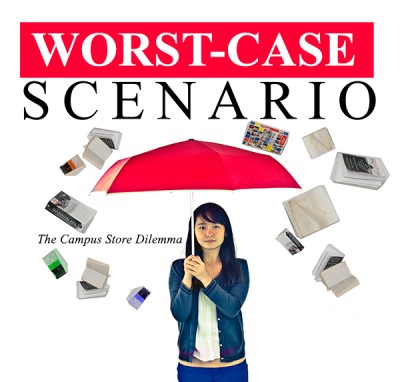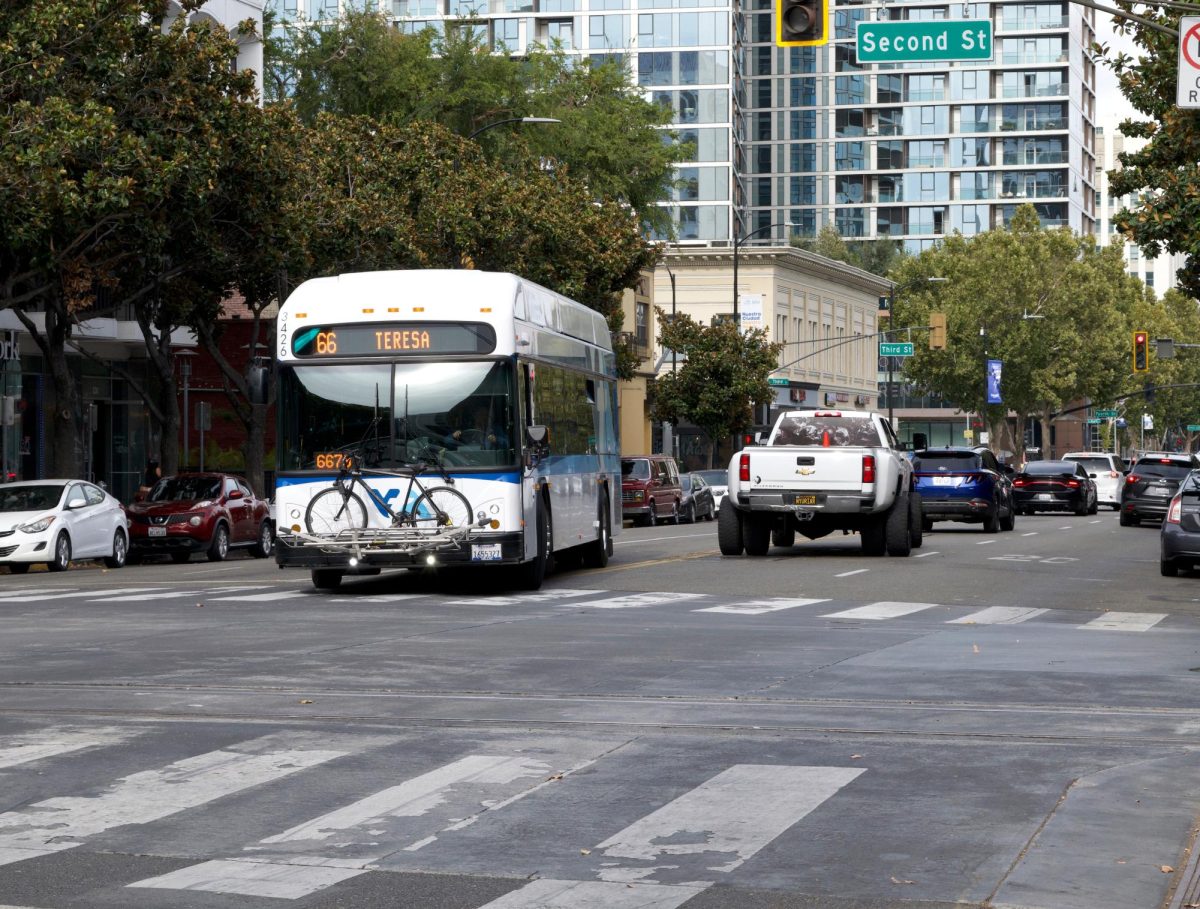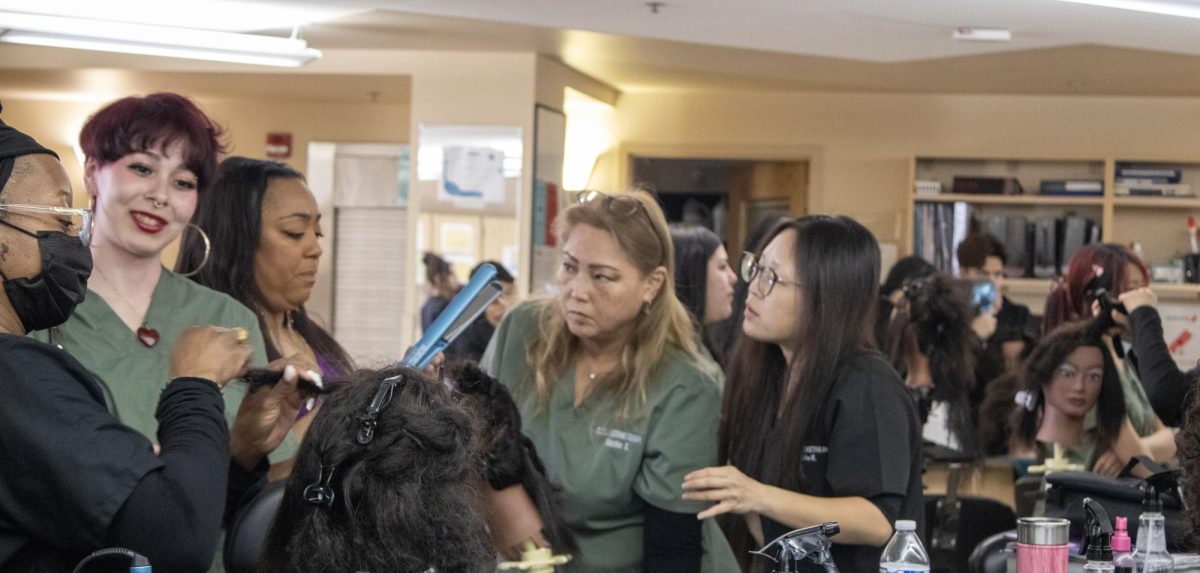[media-credit id=67 align=”alignleft” width=”400″] [/media-credit]
[/media-credit]
In the face of more than $400,000 in losses, the bookstore has not only cut down hours of operation and reduced its staff, but the store has also been holding closed meetings discussing the overall fate of the store, in hopes of developing a contingency plan to divert the district from taking decisive action.
The district is “currently underway on solution strategies” wrote Douglas Smith, Vice Chancellor of Administrative Services, “operational loses resulted in a declining fund balance (which is anticipated) to be negative $347,335 on June 20, 2014.”
The options are limited.
“It’s either lease the store out to a private company or turn our operation around,” said Eugene Heck, bookstore staff person.
Considering the store’s operational deficit, the district’s option to privatize the bookstore is not affirmatively off the table.
The campus bookstore has held its doors open through serious operational losses, but unless the store’s balance sheet improves it is not operationally sound.
Privatization of the bookstore would likely mean a higher markup on required text, such costs would be deferred to the students.
Most of the store’s losses were incurred by the store, though not all.
“They moved 200,000 from our budget and moved it to the general fund.” Heck said.
The funds were relocated during the month of accreditation, though no comment at this time has been made explaining why the funds were moved.
SJCC’s administration has little jurisdiction over the bookstore.
“The college is not in charge of the college stores. This is a district function,” wrote Greg Nelson, vice president of Administrative Services.
With online competition and reduced hours, this issue is compounded. The bookstore plans to reduce cost “drastically” though “it’s the publishers who set the prices…” on the books and “…somebody else sets the markup,” Heck said. The bookstore staff still hopes to increase sales and in-store traffic.
No estimates have been made regarding the cost increase students would pay if a private company, like Barnes and Noble, replaced the bookstore.
Though the biggest expense is not in salaries, the store has lost a director, an assistant director and a clerk-cashier, the three salaries and benefits totaling “$200,000 easy” Heck said. Those positions are not filled. Gina Bonanno supervises both district stores.
The reduction in force has not projected to make any real change in the downward trend.
“I understand that part of school is business, and whatever is the best move for the school business wise is, I think they should do it and incorporate student jobs as a part of the dealings,” Associated Students’ Director of Finance, Chris Woods said.
There is a lot of push back against the privatization option. “I think that’s a poor solution. Best practice is to have the bookstore student owned and employee owned.” SJCC instructor, Charles Heimler said.
To contextualize this issue further, the deficit of the SJCC bookstore alone is more than 50% of what the district expected to gain from Proposition 30, which “SJCC was in favor of,” Nelson wrote.






